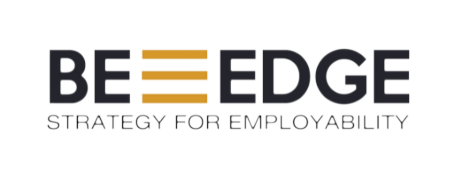
Invest in Real Life Case for Future
Children from Gen Z may have to endure significant competition for employment in the future. According to a study by Visual Capitalist, during the pandemic, Gen Z kids had nearly double the unemployment rate compared to the rest of the generation. This horrible unemployment figure should not have been there because Gen Z kids are expected to be the most educated generation, according to the Pew Research Center.
Nearly 57% of Gen Z kids are currently enrolled in college, while all other generations are below 52%. All of this evidence is pointing to the fact that the competition for jobs for Gen Z kids is going to be huge. For a foreign students of Gen Z, how can they quickly learn about the real local culture and business world? As a foreign student of Gen Z, my biggest advantage is that I know two languages and can translate my country’s business ideas to the local area. But as students, it’s hard for us to put these two strengths to good use. The lack of proficiency in a second language can even be a disadvantage. The real-life case that you learn in school can be the best solution.
The former dean of Harvard Business School, Nitin Nohria believes that real-life case studies allow students to gain
- Motivation to learn
- Discernment
- Bias Recognition
- Decisiveness
- Collaboration
- Curiosity
- Self-confidence
And I think the most important of these for me or for international students like me are Collaboration, Decisiveness, Curiosity and Responsibility.
Collaboration
Regarding collaboration, during the real-life case study, we need to discuss in small groups, and during these discussions, I slowly learn the vocabulary that I know but cannot express in my second language. I also learned more about the local culture, such as the way of working, more serious or more relaxed; the understanding of the concept of time, Monochronic time or Polychronic time; and especially the understanding of the language, high context or low context. In the course of these discussions and group projects, you will became more aware of the various habits of the local people, an understanding that was proposed to be impossible to acquire in any reading study. And these cultural understanding, communication styles and skills are crucial for future work.
Decisiveness
In decisiveness, the real-life case study will make me think about the possibility of various decision outcomes. It also forces me to think outside of my stereotypes of thinking to think about more possibilities. If it is a case that has already happened, I can also think about what I have overlooked and whether I could have done better than the decision maker at that time. And I continue to question my conclusions, trying to find a more creative and less risky solution. The training of these cases can help train the way of thinking, business thinking. Make the knowledge learned not just on paper, but an understanding that can be changed to suit different situations. It can also improve critical thinking. The market is a place of creativity and innovation. We must always keep up with the dynamics of the market. Once you fall behind, then you will definitely lose the competitive advantage that belongs to you. This building of critical thinking, always thinking about whether you are wrong, is then the cornerstone of continuous progress.
Curiosity
I think the most interesting part is about the real-life cases that make students so curious about the business world. Business students from foreign countries have more or less heard legendary business stories from their own country and can find out that business practices that are very popular in their own country are still completely non-existent in another country. This will greatly enhance their curiosity about business, but it will also make them think superficially. Because these artful business stories will remove the details of operating. And I was one of them. When I was working on my last group project, consulting on globalization for a Ukrainian furniture and tableware company, I thought that a business model from China would certainly help my client expand its market to a great extent. But after studying the client’s company and the local business environment, as well as the operating details of these emerging business models, I realized that these business models have more or less limitations and may not be replicable locally. This made me more aware of these emerging business models and their applicability and limitations.
Responsibility
When I do research on real-life cases, I feel a sense of responsibility for my clients. This sense of responsibility compels me to research more deeply into my client’s business sector and to research the local market as well. This research brings me closer to the local market and gives me a better understanding of my client’s business sector. Instead of just a superficial understanding from a textbook. And in the course of my research, I found many convenient resource sites and analysis sites. Also asked various people professional questions about their fields. All this tedious communication and a lot of information searching and summarizing was difficult for me to do on my own initiative, and it was the sense of responsibility that forced me to step out of my comfort zone for a change. These things are the “experience” required by many companies’ HR departments.
Language skills, communication skills, and business thinking are all abilities that can be a competitive advantage for me, and these can be improved by a real-life case. If you are an international student like me and want to improve your international competitiveness, I recommend you to try the real-life case use EDGE and create your own personal strategy to get competitive advantage.
About the Author



